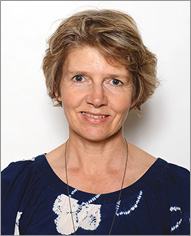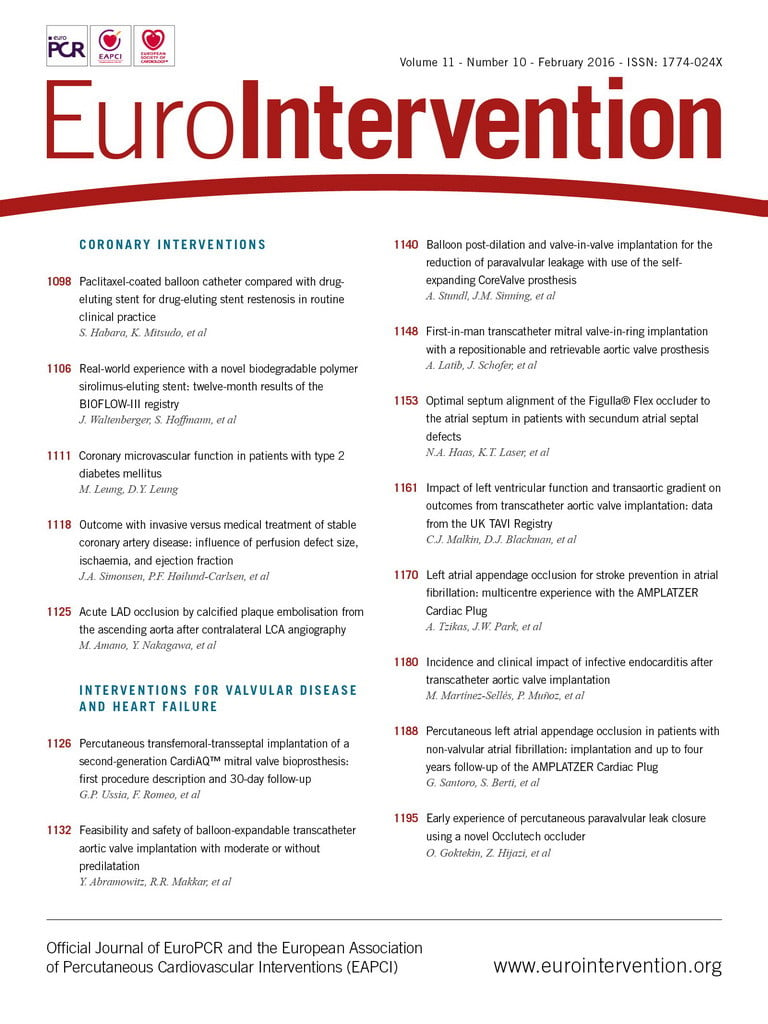NEWS
■ EAPCI Fellows course: Taking place from 9-11 June 2016 at the Heart House, Sophia Antipolis, France. This course is designed to aid the continued development of medical doctors who have started or have recently completed a programme of training in interventional cardiology in the core subjects of the syllabus. Register now to benefit from early fees!
■ The EAPCI Nominating Committee 2016 is pleased to announce the final slate of candidates for the EAPCI Board 2016-2018 positions of President-Elect, Secretary and Treasurer. Elections will take place online from 1 February to 29 February 23:59 CET. Consult the EAPCI website for the candidates’ names.
■ EAPCI membership changes name but the benefits remain the same! “EAPCI membership” becomes “EAPCI Regular membership”. Discover your new “My ESC account” today!
EAPCI Focus on the Nurses and Allied Professionals (NAPs) Committee
Lene Kløvgaard, Chair

Lene Kløvgaard, Chair
Since EAPCI was established it has been the platform for clinical and scientific exchange of knowledge, mainly for the interventional cardiologist community. In his EuroIntervention editorial in April 2014, Jean Fajadet announced the creation of a committee within the EAPCI community, dedicated to European nurses and allied professionals in the field of interventional cardiology. The objectives of the committee were to increase the professional profile, to promote networking and to share knowledge among European NAPs.
Interventional cardiology has changed over the last 20 years, with an increase in complexity of the procedures being performed. The patient cohort has shifted towards an older population with considerable comorbidities, which requires a higher level of expertise for the professional staff member. Dr Fajadet stated, “We cannot offer the high level of care we strive for today if we do not offer the best level of education and opportunities to the nurses and allied professionals”. Following EuroPCR 2012, a survey was conducted with the aim of mapping out the level of education and professional development for NAPs. In the survey, 52% of NAPs acknowledged the need for extra qualifications beyond basic education to work in the catheterisation laboratory. In response to this, one of the major challenges for the NAP Committee was to address the need for a homogenous education platform. Therefore, an education task force was founded, chaired by Lynne Hinterbuchner, Austria. The focus was to develop a training and education programme for European NAPs. A core curriculum, based on harmonised integration of the current EAPCI medical platform, is the first step. We expect to present the core curriculum with related syllabus at EuroPCR 2016. Later modules for the ESCeL learning platform will be developed, striving in the long term towards a European certification for advanced professionals.
Networking and communication are important issues in the making of a community. So far, the NAP community consists of a small number of initiated members, but our long-term goals are to extend our network throughout Europe and to have an ambassador in each ESC country. To support networking and to relay information of interest to NAP members, a LinkedIn group has been established, as well as a network task force, chaired by Vera Rodriguez, Spain.
Members of the NAP Committee meet every year in October to make plans for the subsequent EuroPCR programme, a programme made for NAPs by NAPs. Simultaneous to the programme building, the submission site for abstracts and clinical cases is open. Besides the learning sessions, it is also crucial to have a scientific platform where we can obtain the latest research results in our area. This gives NAPs the possibility to present and discuss their research among colleagues.
The NAP Committee, under the co-chairmanship of David Zughaft, Sweden, and Sandra Griggio, Italy, is the most recently established committee in the EAPCI community. We have a great deal of work to do, we are enthusiastic about it and we are very pleased to be a part of the EAPCI.

